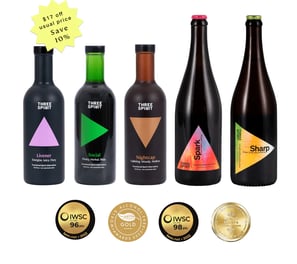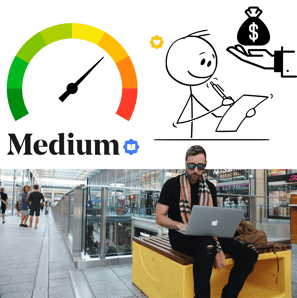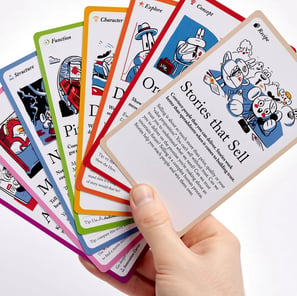The Power of Asking the Right Questions
The right questions are never just tools, it’s a spark that can ignite something extraordinary. | Shifting the dynamics of where a question might take you can be as tiny as changing the order of words in a sentence.
Fouad FARJANI
1/15/2025
The Power of Questions | Unlocking doors to understanding
In the grand orchestra of human communication, questions are the voiceless maestros. They lead, guide, and set the rhythm of every interaction. Yet, not all questions are created equal. Some are average, asked out of habit or politeness, like “How are you?” Others, however, are transformative, capable of opening entire worlds of understanding with a single inquiry. Learning to ask the right questions, is ultimately a skill that is as profound as it is underappreciated.
The power of asking the right questions lies in their ability to cut through the noise. For instance, think about the difference between asking, “What happened?” versus “Why do you think that happened?” The first seeks a factual recount, while the second probes deeper into causes, motivations, and implications. Great leaders, journalists, scientists, and thinkers throughout history have mastered this art. Socrates famously said, “I cannot teach anybody anything. I can only make them think.” His method—posing strategic questions—laid the groundwork for critical thinking itself.
In daily life, the right questions can create bridges. They show curiosity and empathy, inviting others to share their perspectives. When faced with conflict, instead of asking, “Why are you being so difficult?” you could ask, “What’s making this situation hard for you?” That small shift can transform a defensive argument into a productive dialogue. Questions like these disarm people, making them feel heard rather than attacked.
Samuel L. Jackson’s life as an actor also illuminates the importance of thoughtful questioning. When taking on a role, he must dig beneath the surface of the script. “What does my character want?” “How does he see the world?” “What’s driving his actions in this scene?” Without these questions, he’d merely be reciting lines instead of creating iconic, unforgettable performances. The same principle applies to any profession or eventually life as we live it on a daily basis. Whether you’re designing boats, diagnosing a patient, or mentoring a team, asking the right questions sets you apart from the average thinker.
Ultimately, questions are not just tools for others—they are mirrors we hold up to ourselves. What do I value? What am I avoiding? Where do I want to go? These self-inquiries help us grow. They demand honesty, and with it, the courage to face truths we might otherwise avoid. The right question, then, is like a key that unlocks not just answers, but better versions of ourselves.
Challenging Assumptions | The true art of inquiry
Every answer begins with a question, but every meaningful answer begins with the right question. The distinction is critical. Too often, we accept surface-level inquiries and, by extension, surface-level answers. We ask “What?” when we should ask “Why?” or “How?” This lack of depth keeps us comfortable in our assumptions, but it also keeps us stagnant.
Take the business world as an example. Companies that innovate don’t just ask, “What are customers buying?” They ask, “Why are they buying it?” and “What problems are they trying to solve?” Netflix didn’t disrupt the entertainment industry by asking how to make better DVDs. Instead, it questioned the very format itself: “What if people didn’t need physical copies at all?” Asking these deeper questions led to streaming a solution customers didn’t even know they needed.
In personal life, assumptions are often our blind spots. Think about relationships. We might ask, “Why doesn’t my partner understand me?” when the real question should be, “Have I made myself clear?” or “Am I listening to them?” The ability to challenge our own perspective, and the questions we ask can transform how we connect with others.
This principle even extends to societal issues. Throughout history, progress has come from individuals asking questions that others were too afraid or indifferent to ask. Abolitionists didn’t ask, “How do we make slavery more humane?” They asked, “Why does slavery exist at all?” Scientists like Galileo and Darwin didn’t settle for “What does the church say about the universe?” but instead wondered, “What does the evidence reveal?” These questions were dangerous, disruptive, and revolutionary—but they were also necessary.
Samuel L Jackson’s reflection on asking the right questions ties neatly into this idea. His career spans decades, genres, and characters. To stay relevant and versatile in such a competitive industry, he couldn’t afford to rely on assumptions. For every script, he had to challenge what was on the page. What’s the subtext here? What’s the director’s vision? How can I make this role mine? This relentless inquiry is part of what makes him not just a good actor, but a stunning one.
At its core, challenging assumptions requires bravery. It’s easier to stay on the beaten path, asking safe questions that confirm what we already know. But the most impactful questions, the ones that lead to growth, change, and innovation are the ones that disrupt the status quo. They demand that we think critically, question authority, and embrace the discomfort of not having all the answers.
Questions as Tools for Connection and Growth
If questions are keys to understanding and progress, they are indeed bridges. They connect us to others, to new ideas, and most importantly to ourselves. However, not all questions build connections. Some can be dismissive, accusatory, or even manipulative. The art lies in crafting questions that invite dialogue and growth rather than shutting it down.
In human relationships, the right questions foster intimacy. Imagine a friend telling you about a tough day. Instead of asking, “What happened?” you ask, “What can I do to help?” That subtle shift changes the dynamic. The first question seeks information; the second shows care. Similarly, in professional settings, managers who ask employees, “What support do you need to succeed?” build trust and loyalty far more effectively than those who simply issue directives.
Poor questions come from a place of laziness or fear—“How do I fix this problem quickly?” But great questions come from curiosity and courage “What can I learn from this experience?”
Asking the right questions also shapes how we see ourselves. Self-reflection is a cornerstone of personal growth, but it hinges on the questions we ask. Instead of asking, “Why do bad things always happen to me?” try, “What can I learn from this situation?” or “How can I grow through this?” The former keeps you stuck in victimhood, while the latter empowers you to take control.
Even seemingly trivial questions can have surprising power. Starting your day with, “What am I grateful for?” can shift your mindset toward positivity. Or consider the question, “What’s one thing I can do today to move closer to my goals?” Small as it seems, this inquiry nudges you toward intentional action.
In an artist’s world of storytelling, questions play a similar role. Books or Movies, at their best, are not just entertainment but explorations of humanity. The most memorable films leave us with questions rather than answers. What would I do in that situation? What does this say about our society? In this way, asking the right questions doesn’t just enrich our understanding, it also keeps us curious, engaged, and alive.
Learning to ask the right questions is about more than getting better answers.
It’s about fostering understanding, challenging assumptions, and creating meaningful connections.
Whether in art, business, relationships, or personal growth, the right question is never just a tool, it’s a spark that can ignite something extraordinary.



















